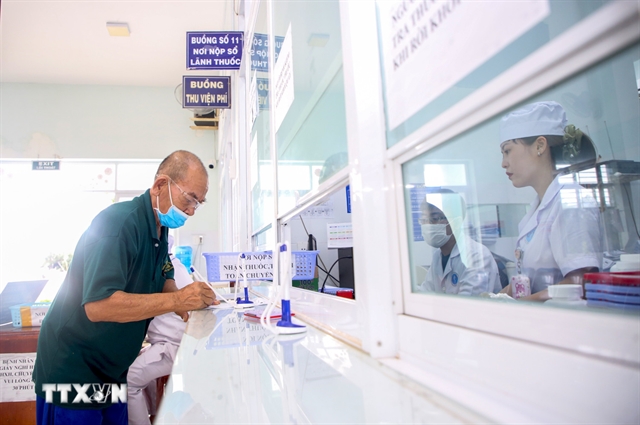 Media-OutReach Newswire
Media-OutReach Newswire

KERALA, INDIA - Media OutReach - 6 August 2018 - India is one of the most vulnerable countries in the world when it comes to natural disasters -- prone to floods and landslides during the monsoon season, and a high incidence of cyclones and earthquakes. With climate change, the number and intensity of these disasters are only expected to grow, which means the government faces incrementally greater challenges in delivering aid and other humanitarian services when tragedy strikes. Making sure infrastructure is disaster-ready is key to saving lives, and airports are a major part of that.

|
At Calicut International Airport in Kozhikode city, Kerala, 14 airport operations experts from across India have gathered for a five-day training from 6-10 August 2018 to learn how to make their airports disaster-ready, and to become national trainers for GARD workshops in India. Deutsche Post DHL Group (DPDHL) and the United Nations Development Programme (UNDP) are expanding their internationally recognized Get Airports Ready for Disaster (GARD) program with officials and experts from the Airports Authority of India (AAI). This workshop will include a new Train the Facilitator (TtF) element for countries that are at above average risk for natural disasters. This not only supports airport authorities in their efforts to build resilience against future natural disasters, but also enables participants to train others at the national level.
"Channeling relief efforts from airports to affected communities require efficient operational procedures, and appropriate infrastructure capabilities" said Subhash Kumar, General Manager at the Airports Authority of India. "In addition to reassessing airport facilities and strengthening staff expertise, this workshop will allow us to build up our readiness for any potential emergencies across the country and regionally."
At the workshop, facilitators-in-training will learn how to evaluate the current level of preparedness at airports, conduct training exercises, and develop specific recommendations and ready an action plan to ensure that airports are prepared for future disasters. Thereafter, all attendees will be able to conduct GARD workshops at the national level themselves.
"The new initiative allows airports to conduct the GARD training when it suits the regional needs best -- that makes the roll out much more flexible," explains Chris Weeks, DPDHL Director for Humanitarian Affairs. "Furthermore, the Train the Facilitator workshop allows us to share our knowledge that we have gathered in more than nine years' of experience with others and thereby scale up the number of GARD trained airports to make the program even more effective."
To ensure fast and effective assistance in the immediate aftermath of a natural or man-made disaster, besides having the necessary airport infrastructure and local transport connections to smoothly deliver lifesaving support to impacted communities, the team on site needs to be trained in the necessary protocols and know-how to handle the dramatic rise in air traffic and flow of goods and people that typically follows a disaster.
"With increased vulnerability due to climate change, it is essential to strengthen national capacities and resilience to natural disaster. These include training local authorities in special customs and immigration policies that need to be activated in the event of emergency, and having passenger evacuation plans or accommodation at the airport for the first 72 hours," said Preeti Soni, Assistant Country Director, UNDP. "The introduction of TtF GARD workshop will ensure that rescue and relief efforts can be carried out smoothly while reducing losses from natural disasters."
So far, Guwahati and Chennai airports are already GARD-trained and thus prepared to handle emergencies better.
About GARD
In 2009, GARD was developed by Deutsche Post DHL Group in cooperation with the United Nations Development Programme (UNDP) with the aim of preparing airports in disaster-prone areas to handle the surge of incoming relief goods after a natural disaster occurs. It also enables the various organizations and aid agencies to better understand the processes at the airport in the aftermath of a disaster, which will help facilitate relief efforts and enhance overall coordination.
To date, GARD workshops have been held at more than 40 airports in Armenia, Bangladesh, the Dominican Republic, El Salvador, Ecuador, India, Indonesia, Jordan, Lebanon, Macedonia, the Maldives, Nepal, Panama, Peru, the Philippines, the Seychelles, Sri Lanka and Turkey.
GARD trainers and training materials are provided free-of-charge by Deutsche Post DHL Group while UNDP leads the project implementation and facilitates the coordination with the national authorities and governmental ministries. GARD training workshop arrangements and logistics costs are fully covered by UNDP with funding contribution by the government of Germany.
GARD is an integral part of Deutsche Post DHL Group's GoHelp program in which the Group pools all of its activities related to disaster preparedness and management. As a form of crisis prevention, GARD workshops are used to prepare airports for coping with potential natural disasters. Should a disaster strike, Disaster Response Teams (DRTs) provide emergency aid and ensure that relief supplies can be accepted in a coordinated manner and passed on to the correct aid organizations.
The DRTs were established in cooperation with the United Nations Office for the Coordination of Humanitarian Affairs (UNOCHA). They encompass a worldwide network of more than 400 volunteers, all specially trained employees of Deutsche Post DHL Group.
You can find the press release for download as well as further information on dpdhl.com/pressreleases
About Deutsche Post DHL Group
Deutsche Post DHL Group is the world's leading mail and logistics company. The Group connects people and markets and is an enabler of global trade. It aspires to be the first choice for customers, employees and investors worldwide. The Group contributes to the world through responsible business practices, corporate citizenship and environmental activities. By the year 2050, Deutsche Post DHL Group aims to achieve zero emissions logistics.
Deutsche Post DHL Group is home to two strong brands: Deutsche Post is Europe's leading postal service provider. DHL offers a comprehensive range of international express, freight transport, and supply chain management services, as well as e-commerce logistics solutions. Deutsche Post DHL Group employs approximately 520,000 people in over 220 countries and territories worldwide. The Group generated revenues of more than 60 billion Euros in 2017.
Die Post für Deutschland. The logistics company for the world.
About the Airport Authority of India
The Airports Authority of India (AAI) under the Ministry of Civil Aviation is responsible for creating, upgrading, maintaining and managing civil aviation infrastructure in India. It provides Air traffic management(ATM) services over Indian airspace and adjoining oceanic areas. It also manages a total of 125 Airports, including 21 International Airports, 8 Customs Airports, 77 Domestic Airports and 19 Civil enclaves at Military Airfields. AAI also has ground installations at all airports and 25 other locations to ensure safety of aircraft operations.
AAI has entered into Joint Ventures at Mumbai, Delhi, Hyderabad, Bangalore and Nagpur Airports to upgrade these airports. AAI has four training establishments viz. The Civil Aviation Training College (CATC) at Allahabad, Indian Aviation Academy (IAA) at Delhi and Fire Training Center (FTC) at Delhi & Fire Service Training Center, Kolkata. In addition to in-house flight calibration of its navigational aids, AAI undertakes flight calibration of navigational aids for the Indian Air Force, Indian Navy, Indian Coast Guard and other private airfields in the country.
About UNDP
UNDP works in close to 170 countries and territories, helping to achieve the eradication of poverty, and the reduction of inequalities and exclusion. We help countries to develop policies, leadership skills, partnering abilities, institutional capabilities and build resilience in order to sustain development results.
UNDP has worked in India since 1951 in almost all areas of human development, from democratic governance to poverty eradication, to sustainable energy and environmental management. UNDP's programs are aligned with national priorities and are reviewed and adjusted annually.
Please visit: www.in.undp.org for more information.




